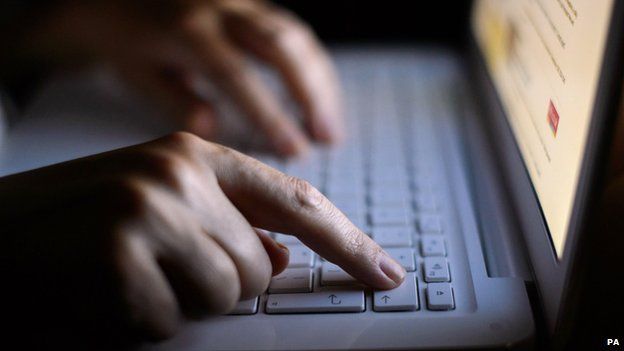Plea for people to create 'digital legacy' letter
- Published
- comments

People need to consider their "digital legacy" and whether they want relatives to access their online accounts after they die, a funeral company has said.
Research for Co-operative Funeralcare has highlighted the difficulties people have experienced when trying to deal with a loved one's internet identities.
The firm suggests people could put the account details in a sealed letter to their executors.
It comes after Facebook this month unveiled legacy settings for its users.
Facebook was following in the footsteps of Google and other technology companies when it added the new setting that gives people the option of having their account permanently deleted, or some aspects passed to the control of a friend or relative when they die.
A Co-operative survey found that while almost all bank customers now have access to their accounts online, three out of four have not made any arrangements for the details to be passed on.
The poll of more than 2,000 adults also discovered that almost 80% of those who attempted to manage online bank, utility, shopping and social media accounts following a death said they had experienced problems.
Only 16% of people, however, said they wanted their next of kin to have access to their social media accounts, with around the same number saying they would like them to stay in touch with their online contacts.
The Co-operative said that while it was suggesting people may like to include their account information in a sealed letter to their executors, the details should never be included in a will, as it could become a public document after their death.
Sam Kershaw, director of operations for Co-operative Funeralcare, said: "Conversations about end of life are never easy. However, as we increasingly live and manage our lives online, communicating with a loved one about the accounts you hold and what you would want to happen to them may greatly help should they ever need to access, manage or close accounts on your behalf."
- Published12 February 2015
- Published30 September 2014
- Published9 October 2013
- Published12 April 2013